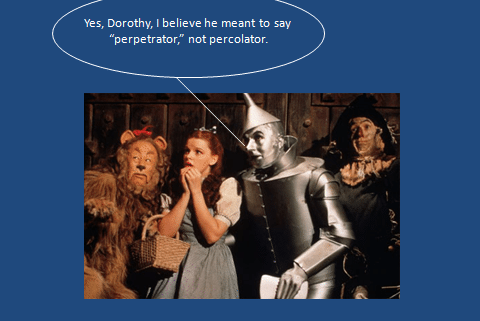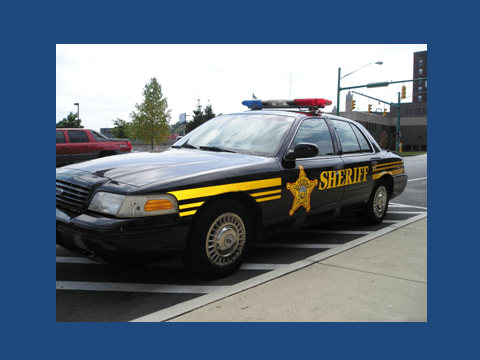Perpetrator or Percolator: What’s In Your Dialog?
Police jargon, or slang, is truly a language of its own. It’s a collection of words that can and do vary greatly from one area of the country to another. Even neighboring counties and cities sometime have their own special slang terms that are unique.
If a writer’s goal is realism, I strongly urge the storyteller to do a little homework to avoid dialogue and terminology that doesn’t ring true, especially within a specific location or agency. A quick phone call to a police department’s public affairs office will normally provide you with the needed information.
I’ve had the opportunity to speak with police officers all across the country about this very topic. Athough, my focus was on the use of three specific terms/words that I often see used in works of fiction—Perp, Vic, and Juvie. I wanted to see if cops truly used those slang terms. I already knew the answer but, as always, it’s best to do our homework if we’re aiming for facts (hint).
Here’s what I learned.
1) Perp – Not many police officers use the shortened form of the word perpetrator. Instead, they use the more common terms, suspect, actor, or ***hole. Listen to police scanners and you’ll rarely, if ever, hear an officer say, “We apprehended the perp at 0100 hours.” Typically, it’s, “We apprehended the suspect at 0100 hours.”
Perp is generally a specific, regional term. I’ve heard it used more in the New York and Boston areas more than any other location. Still, it’s not used by all officers.
FYI – the term perpetrator is NOT to be confused with the closely-sounding “percolator.” Confusing the two could prove to be quite embarrassing.
Yes, I once saw the perpetrator/percolator faux pas in a manuscript. Imagine reading a book written by your favorite author and you see this on page 47 – “10-4, Captain, the percolator who robbed the hot dog stand was short and stocky, and a witness said he had a tattoo on his forehead that she believed spelled the words ‘Ken’ and ‘More.’ Could be his name—Ken More.”
By the way, you’ll probably not hear the other, more colorful term “a**hole” used on the police radio. It and other profanity are not supposed to be spoken on the air, but when the adrenaline is high and the bullets are flying, well, you just might hear anything.
“The a**hole just fired two rounds at me! Send &*%@ing backup. NOW!!”
2) Vic – This is another one I’ve seen in books countless times. Again, not all cops use Vic, if any, when referring to the victim of a crime. Well, TV cops do, but not all real-life cops. Actually, some real-life cops refer to their police cars as a Vic, if they’re driving a Ford Crown Victoria.
To hear a fictional officer misuse the term can be a bit humorous. And, when a reader is thinking one thing but reading another, like – “I really put the Vic to the test. Put my foot in ‘er and drove ‘er hard, first up the mountain and then back down. Wide open all the way. Didn’t let up for a minute. I finally backed off because she started to spit and sputter. Overall, it was a good ride and I’d like to try it again.”
It’s probably a great idea to provide a lead-in so readers will know your hero is referring to a car, not the unfortunate murder victim from chapter three. Ouch!
What word do cops use when referring to a victim? That’s an easy one—victim! Or … dead guy, DB (dead body), maggot snack, etc.

3) Juvie – This is a nickname given to a place of detention for juvenile offenders, or as a generic word for kids.
Again, not all members of law enforcement use this term.
Most simply say “juvenile” to describe those innocent little darlins’ who are always on their best behavior.







